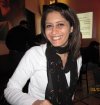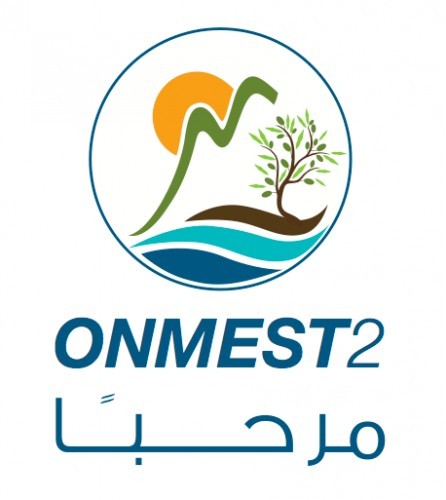
Women in Lebanese Elections: Second-Class Citizens
“Give us your vote, and be satisfied with your beauty!” - an appropriate and real-life slogan for the situation in which women in Lebanese politics have found themselves, especially in the recent parliamentary elections. Despite the fact that Lebanese women attained suffrage in 1953, the number of women who have been elected is extremely low. The timid participation of women running for office in the 2009 elections is a discouraging indication to what the future holds for women in Lebanese politics.
During the debate over the reform of the Lebanese electoral law, the political blocs announced their positions regarding the female quota included in the draft bill submitted by the Boutros Commission. All blocs acknowledged the equal right of men and women to hold a seat in parliament, however, most of the parliamentary blocs opposed the principle of a quota. General Michel Aoun, leader of the ‘Reform and Change’ bloc, stated his progressive stance on the matter, although this view was not translated into practice, but rather remained within the framework of public discourse.
General Michel Aoun stated that his bloc refused to vote for the quota because he is for absolute equality between men and women and because the charter of the Free Patriotic Movement stipulates and encourages such equality. Because women make up half of society, then they have the right to be represented by 50 percent of parliament. These words were not translated into practice with regards to women candidates on the lists of the ‘Reform and Change’ bloc, for only one woman was nominated on all theses lists that included more than 60 male candidates.
As for the pro-government blocs, despite their repeated public statements on the necessity of equality between men and women, the number of female candidates on their party lists did not exceed three, and those who were nominated were selected on the basis of nepotism, familial political legacies, and martyred relatives.
The ad campaigns of both the opposition and the pro-government blocs tried to draw women to the ballot box. The Free Patriotic Movement turned towards women with the slogan “Be Beautiful and Vote!” which prompted the pro-government blocs to respond with their own ad campaign that stated “Be Equal and Vote!” The campaigns called on women to vote, but they saw no shame in the dismal number of female candidates on their party lists. It is important to note that the 2009 parliamentary elections in Lebanon saw a remarkable response by women at the polls, which means that Lebanese women practice their full duties as citizens, however, they lack their rights, political rights specifically, which turns them effectively into second class citizens.
Firstly – the 2009 Elections: A Dramatic Withdraw of Women
1992 Elections
The 1992 round of elections was marked by a large popular boycott, in which only three women ran for parliament: Nayla Mouwad for the northern district (made possible by the political legacy of her husband President René Mouwad who was assassinated), Maha el Khoury Aasad for the Jbeil district who gained 41 votes, and Bahiya al-Hariri for the southern district who rose up with the clout and support of her brother Rafiq al-Hariri.
The1996 and 2000 Elections
In the 1996 elections, three women won seats in parliament: Nuhad Sa’eed who was born into a political dynasty, Nayla Mouwad, and Bahiya al-Hariri. However, the parliamentary elections that took place in the year 2000 saw an increase in female candidates but most ultimately failed to gain seats in parliament, with the exception of three: Ghenwa Jalloul, Bahiya al-Hariri, and Nayla Mouwad.
The 2005 Elections
The 2005 Elections occurred in the midst of severe political divisions that reflected the delicate and exceptional local and regional circumstances of that period, and saw an extraordinary increase in number of women who entered parliament. The number of female MPs increased to six: Bahiya al-Hariri, Nayla Mouwad, Strida Geagea, Solange al-Gemayel, Ghenwa Jalloul, and Gilberte Zwein.
The 2009 Elections
As for the 2009 elections that just took place, they saw a significant decline in the role of women both in terms of the number of candidates and in terms of electoral victories, in contrast to a remarkable female voter turnout witnessed in most Lebanese regions. By evaluating the election results, we note the following trends:
1 – The number of female MPs decreased by 35 percent in Parliament compared to the year 2005, as the number of female parliamentarians was reduced to four: Nayla Tueni, Bahiya al-Hariri, Strida Geagea of the pro-government blocs, and Gilberte Zwein of the opposition. The ascension of these four female parliamentarians is tied to their political heritages and the influence of their slain relatives. Nayla Tueni is the daughter of the martyr Gibran Tueni. Bahiya al-Hariri is the sister of the martyr Rafiq al-Hariri. Strida Geagea is the wife of the leader of the Lebanese Forces, Samir Geagea, who is unable to run for office. As for Gilberte Zwein, she is the scion of a feudal dynasty in Keserwan.
Three former female parliamentarians stepped down. The Future Movement sought to replace Ghenwa Jalloul with the Islamic Group’s candidate in Beirut, Imad al-Hout. Solange al-Gemayel, the wife of slain President Bashir al-Gemayel, relinquished her seat in the interest of her son, Nadim. Likewise, Nayla Mouwad, the widow of former president René Mouwad, withdrew from parliament in an attempt to turn her seat over to her son Michel, who lost in the elections.
2 – The level of women’s participation as candidates in the parliamentary elections dropped from 34 women in the 2000 elections to just 14 women in the 2005 rounds, i.e. to just 3.5 percent of the number of candidates, ending up at 12 women in the 2009 parliamentary elections, less than two percent of candidates.
3 – Women’s voter turnout exceeded that of men. A comparison of voter turnout in the rounds that saw a heated and extremely politicized electoral battle indicates that Lebanese women are no less politically active or enthusiastic than men. For instance, in Zahle 60 percent of women voted compared to 56 percent of men, whereas the rates in the western Beka’a and Rachaiya districts were as follows: 58 percent of women versus 49 percent of men. The two genders were on a par in the northern Metn district with 55 percent turnout on each side. As for the Beirut 1 district, female voter turnout, unlike the situation in most other districts, was less than that of males, since 40 percent of women voted versus 41 percent of men.
Secondly – Obstacles to Women Gaining Seats in Parliament
The experience of Lebanese parliamentary elections demonstrated a number of factors that hindered the ability of Lebanese women to gain authority, the most important of which are:
- The male chauvinistic mentality held by most politicians and leaders of the parliamentary blocs. Most party leaders hold a view that women are inferior, and they limit the presence of women to the second and third ranks of the parties and refrain from appointing women to positions within their inner circles even if her aptitude and her superiority over her male peers is clearly demonstrated.
- The sectarian electoral law, the costs of nomination and media campaigns, in addition to the rigid party alignments that are impenetrable by independent male and female candidates.
- The absence of a general policy or legislation that encourages women to participate in the political arena, and the absence of laws that mandate party lists to include female candidates.
- The weak role of non-governmental organizations and their inability to form a strong and effective lobbying force to change the general negative trends towards the position of women within political power structures.
- The absence of targeted public awareness campaigns aimed at encouraging women to participate in public life and the political sphere.
- Family education, which gives preference to males and the authoritarian relationship within the family, whereby the man is always the boss.
- Families, generally, do not encourage women to engage in politics or get involved with political parties and trade unions.
- Societal and cultural values, including religious ones, which make the role of women primarily in the management of family affairs, the care and upbringing of children, as well as the service of their husbands and household management. Whereas the role of men goes beyond the borders of this realm and includes the public arena, such as entry into the work place, management of finances, and involvement in public affairs and the political arena.
- The personal character of women, their behavior and personal circumstances, which are reflected in a lack of confidence in themselves and their fellow women. The lack of awareness of their political rights, lack of a general conviction in the importance of participation in public life, including political decision-making, as well as the lack of enthusiasm on the part of most women for plunging into a battle to wrest power and leadership from men and to end their economic dependence on them.
http://www.tayyar.org/Tayyar/News/PoliticalNews/en-US/128925517416407315.htm







 Elie Nader
Elie Nader
 Pascale El Dib
Pascale El Dib
 Elias Sahyoun
Elias Sahyoun

Leila Nicolas Rahbany
16 years agoIt was a nice article, but you copied the article without mentioning the author!!!!!!!!!!!!!!
this is not usual for a respected website like yours- to put another name(this is regarded stealing).
the article's author is Dr. Leila Nicolas rahbani--- it was first published in Arabic and English on Aswat.com
then it was published on Tayyar.org in English
and on many websites like elnashra.com in Arabic....
thanks